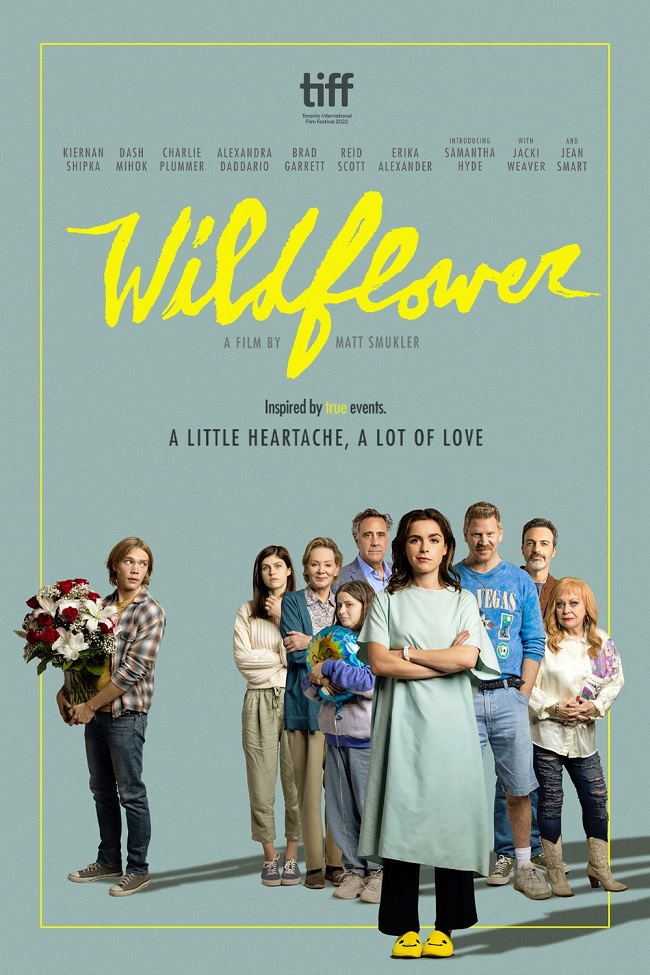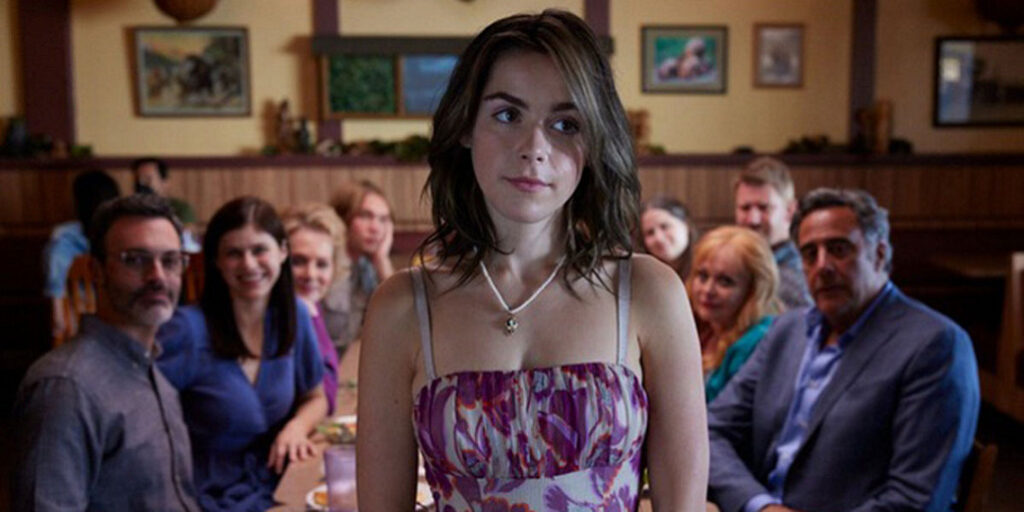
The world doesn’t work the same way for everyone, and people are often boxed into expectations others have of them that may not be realistic or fair. Development disabilities in particular have led to people being alternately underestimated and underserved, far too often with cruel judgments about capability. Wildflower is an ultimately uplifting story inspired by true events about a different way of looking at the world and how that molded one young woman into the person she became.
This film begins with Bea (Kiernan Shipka) in a coma surrounded by many members of her extended family. Her story unfurls with her as the narrator and each person playing a part. Peg (Jean Smart) and Loretta (Jacki Weaver) aren’t too happy when their two intellectually disabled children, Sharon (Samantha Hyde) and Derek (Dash Mihok), meet and quickly begin a romance. Their daughter Bea is born soon after, with both grandmothers expressing concern that the couple won’t be able to properly care for her. Though she spends some time living with her Aunt Joy (Alexandra Daddario) and Uncle Ben (Reid Scott), Bea’s understanding of the world is shaped primarily by her parents, giving her an off-kilter outlook that doesn’t always enable her to play well with others.
Wildflower is based in part on the real-life experiences of cowriter-director Matt Smukler and his niece. As a film, it presents many of the societal projections cast upon those who are seen as “others” and what they might be able to achieve. Bea often feels like – and expresses – that she is the parent rather than the child, and that she must educate her parents on things they need to learn, like that her mother shouldn’t freely accept payment to buy alcohol for minors, a fact complicated by Bea having had her mother do the very same thing for her. Like any coming-of-age story, there’s plenty of wisdom to be gleaned, though much of it flows in an atypical direction in this case.

This film, which made its premiere at the Toronto International Film Festival last fall, boasts a fantastic ensemble that also includes Brad Garrett as Sharon’s father, Charlie Plummer as Bea’s high school love interest, Victor Rasuk as Bea’s guidance counselor, and Erika Alexander as a social worker trying to figure out “what happened to her.” The construction of the plot isn’t nearly as strong, spinning a rather expected tale even if it’s not in the most typical order and contains nuances and relationships that aren’t found nearly as often. The inspiration for this project is clearly compelling, but the finished product doesn’t do it justice as well as it could.
A key question to stories that involve those with lived experiences is about representation, and this film does well by casting Hyde, who delivers an affecting performance as Sharon.
Mihok portrays someone whose injury in a car accident has resulted in him functioning differently, and his turn feels respectful enough.
As with any story, it isn’t just about the two of them or Bea, and the conversations that they have about how they have to face the world are among the film’s more potent moments. This isn’t a mockery or an after-school lesson, but instead a film that tries to find real, three-dimensional characters to tell its story.
Shipka, who got her breakthrough role as Sally Draper in Mad Men and more recently anchored Netflix’s The Chilling Adventures of Sabrina and Roku’s much more adult fare Swimming with Sharks, proves herself more than capable of leading a film, and it almost feels as if there’s not enough time to get to know Bea with so many other characters present. Smart and Weaver are dependable and infuse some humor into the film in their interactions, while Daddario and Scott productively reunite under very different circumstances following their previous collaboration in Why Women Kill. There’s a great deal to like and appreciate about this film even if it’s not entirely tight or rich in its storytelling.
Grade: B-
Check out more of Abe Friedtanzer’s articles.
Wildflower is streaming on Hulu.

